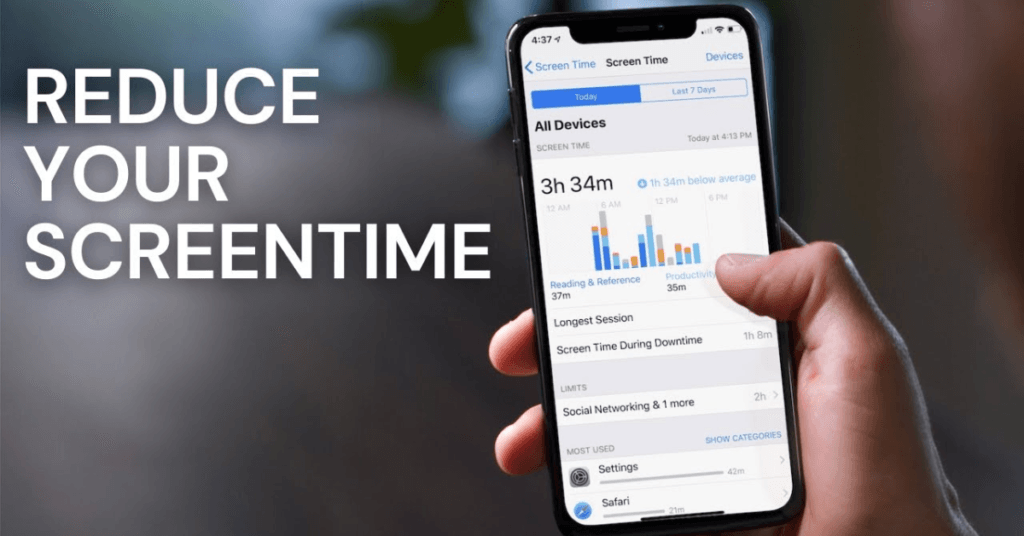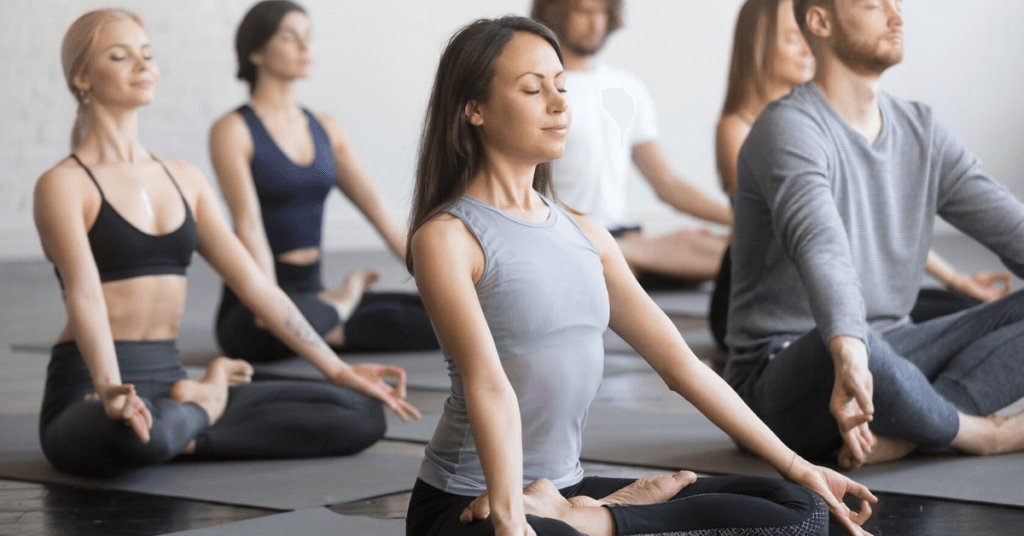Anxiety and stress are considered to be two of the most common mental health problems. They fill your mind with worry and make your body feel tense. You may feel stuck, like you can’t escape or handle the pressure. But the good news is, you don’t have to live this way, which means that you have the power to change this.
You can calm your mind and body using simple, natural methods. No need for strong medicines or complicated steps. Just small changes can help you feel better every day.
In this article, you’ll learn easy and natural ways to reduce anxiety and stress. Each step will help you take control and feel more at peace. Let’s get started!
Get More Physical Activity

Physical exercise can help reduce anxiety symptoms and stress.Physical exercise can keep you active. When you stay active, your brain releases chemicals that improve your mood and help you feel more relaxed. Exercise also lowers stress hormones, helping you think more clearly and feel more in control.
You don’t have to work out for hours to see the benefits. Even small movements can help. Try going for a short walk, stretching your arms and legs, or dancing to your favorite song. Doing simple activities like yoga, swimming, cycling, or even playing with your pet can also help you feel better.
If you spend most of your day sitting, make a habit of standing up and moving every hour. Take the stairs instead of the elevator, park farther from the store, or do simple stretches while watching TV. The goal is to keep your body active in a way that feels good for you.
The more you move, the better you’ll feel. Find an activity you enjoy and make it part of your daily life. Over time, you’ll notice that your anxiety and stress become easier to manage, and your body feels stronger and healthier.
Eat a Balanced Diet

What you eat affects how you feel. Eating the right foods can help lower anxiety and stress, while unhealthy foods can make them worse. Your body and mind need the right fuel to stay strong and calm.
Start by eating more whole foods like fruits, vegetables, nuts, and whole grains. These foods give your body vitamins and nutrients that help you feel better. Foods rich in omega-3s, like salmon and walnuts, can also boost your mood.
Avoid too much sugar, caffeine, and processed foods. They can make your energy crash and leave you feeling more anxious. Drinking enough water is also important because even mild dehydration can cause stress.
Try to eat regular meals and avoid skipping them. When you’re hungry, your body feels more stressed, and your mood can drop. A balanced diet helps keep your energy steady and your mind clear.
Making small changes to your diet can have a big impact. Choose foods that support your body, and you’ll feel calmer, stronger, and better able to handle anxiety and stress.
Minimize Phone Use and Screen Time

Spending too much time on your phone or computer can make anxiety and stress worse. Scrolling through social media, watching too much news, or staring at screens for hours can overwhelm your mind and make it harder to relax.
Try to take breaks from screens during the day. Set a time to put your phone down and do something else. Go for a walk, read a book, or talk to a friend. Giving your eyes and mind a rest will help you feel calmer.
Avoid screens before bedtime. The blue light from phones and TVs can make it harder to sleep, which can increase stress. Instead, try a relaxing activity like listening to music or writing in a journal before bed.
You don’t have to give up screens completely. Just find a balance. Less screen time can help you feel more present, improve your mood, and make it easier to handle anxiety and stress.
Practice Self-Care
Taking care of yourself is important for reducing anxiety and stress. When you feel overwhelmed, simple self-care habits can help you relax and feel better.
Start by doing things that make you happy and calm. Take a warm bath, listen to music, or spend time in nature. Even small moments of peace can make a big difference.
Get enough sleep each night. A tired mind feels more stressed, and lack of rest can make anxiety worse. Try to go to bed at the same time every night and wake up feeling refreshed.
Say no to things that drain your energy. It’s okay to take a break and focus on yourself. Spend time with people who make you feel good and avoid those who bring stress.
Self-care is not selfish. When you take care of yourself, you feel stronger, happier, and more ready to handle anxiety and stress. Make it a habit, and you’ll notice a big change in how you feel.
Try Journaling
Journaling is a simple and powerful way to reduce anxiety and stress. Writing down your thoughts helps clear your mind and understand your feelings better. It’s like talking to a friend, but on paper.
When you feel anxious or stressed, try writing about what’s going on in your life. Expressing your worries can help you let go of some of the pressure you feel. You might even discover things that help you feel better as you write.
You don’t need to write for hours. Just a few minutes each day can make a big difference. Write about things you’re grateful for, things that make you happy, or even your dreams for the future. This can shift your focus away from stress and anxiety and help you see the good in your life.
Journaling is a simple tool, but it can be a great way to handle anxiety and stress. Give it a try, and you might find it helps you feel lighter and more at ease.
Reduce Your Caffeine Intake

Caffeine is a popular pick-me-up, but it can make anxiety and stress worse. While it might give you energy for a short time, too much caffeine can make your heart race, increase worry, and leave you feeling more stressed.
If you drink coffee, tea, or energy drinks regularly, try cutting back. Start by having one less cup each day or switching to decaf. This can help your body feel more relaxed and your mind clearer.
You don’t have to quit caffeine completely, but reducing it can make a big difference. By lowering your caffeine intake, you give your body a chance to stay calm, and you may find your anxiety and stress become easier to handle.
Spend Time with Friends and Family

Spending time with the people you care about is one of the best ways to reduce anxiety and stress. When you’re around friends and family, you feel supported and loved. Positive connections can lift your mood and help you feel more relaxed.
Make time for social activities, even if it’s just a phone call or a quick coffee. Sharing a laugh, talking about your day, or simply being around people you trust can take your mind off stress and remind you that you’re not alone.
You don’t need big events to feel the benefits. Simple moments, like watching a movie together, going for a walk, or even sitting in silence, can help lower your stress levels. It’s the connection and comfort that count.
When you feel anxious, reach out to someone close to you. Spending time with friends and family helps you feel grounded and supported, which makes it easier to manage anxiety and stress. Make these relationships a priority, and you’ll notice a positive difference in your well-being.
Avoid Procrastination
Procrastination can make anxiety and stress worse. When you put things off, the tasks pile up, and you start to feel overwhelmed. The longer you delay, the more anxious you may become about getting everything done.
To reduce stress, try to tackle tasks as soon as you can. Break big jobs into smaller, manageable steps so they don’t feel as scary. You don’t have to do everything at once—just take the first step and keep moving forward.
Setting a timer for short bursts of work can help too. For example, try working for 25 minutes, then take a 5-minute break. This can help you stay focused without feeling too stressed.
Avoiding procrastination is a powerful way to reduce anxiety and stress. When you take action instead of worrying, you feel more in control and less overwhelmed.
Take a Yoga Class

Yoga is a great way to reduce anxiety and stress. It helps calm your mind and relax your body through deep breathing and gentle movements. By focusing on your breath and stretching your muscles, yoga can help you feel more balanced and peaceful.
You don’t need to be an expert to start. Many yoga classes are designed for beginners, so you can go at your own pace. Whether you choose a quiet, slow-paced class or something more active, yoga can help you let go of stress and tension.
Taking a yoga class also gives you time to focus on yourself. It’s a moment where you can forget about your worries and just be present. Even a short session can leave you feeling calmer and more relaxed.
By making yoga a part of your routine, you can build a practice that helps you manage anxiety and stress more easily. It’s an excellent way to stay physically healthy and mentally strong.
Spend Time in Nature

Spending time in nature is a simple and powerful way to reduce anxiety and stress. Being outdoors, surrounded by trees, flowers, and fresh air, can help you feel more calm and peaceful. Nature has a way of soothing your mind and taking your focus off worries.
Try to get outside every day, even if it’s just for a short walk in the park or sitting outside for a few minutes. The sights and sounds of nature can help clear your mind and lower your stress levels.
Nature helps you slow down and feel more grounded. Whether you’re hiking in the mountains, walking along the beach, or just enjoying your backyard, being outside can help you feel more relaxed and connected to the world around you.
Making time for nature each day can be a great way to fight anxiety and stress. It gives your body and mind a break from the busy world, helping you feel refreshed and ready to take on life’s challenges.
Practice Deep Breathing

Deep breathing is a simple but powerful tool to reduce anxiety and stress. When you’re feeling overwhelmed, taking a few slow, deep breaths can help calm your mind and body. It slows your heart rate, relaxes your muscles, and helps you feel more in control.
To practice deep breathing, sit or lie down in a comfortable spot. Breathe in slowly through your nose for a count of four, hold for a moment, then exhale slowly through your mouth for a count of four. Repeat this for a few minutes.
Deep breathing helps you focus on the present moment instead of worrying about the future or the past. It’s an easy way to stop anxiety and stress from taking over and helps you feel more grounded and calm.
Whenever you feel stressed or anxious, take a moment to focus on your breath. It’s a quick, natural way to bring peace and relaxation back into your day.
Spend Time with a Pet
Spending time with a pet is a wonderful way to reduce anxiety and stress. Pets, like dogs and cats, give us unconditional love and help us feel calm and happy. When you pet or cuddle your animal, it releases feel-good chemicals in your brain that make you feel more relaxed.
Taking care of a pet also helps you focus on something other than your worries. Walking your dog, playing with your cat, or even just sitting together can take your mind off stress and give you a sense of peace.
Pets are great listeners too. They don’t judge, and just being near them can help you feel less alone. The simple act of caring for an animal helps create a connection that can comfort you during tough times.
So, spend time with your pet whenever you feel anxious or stressed. Their presence can be a soothing, loving way to lower your stress and help you feel happier.
Consider Supplements
Sometimes, the right supplements can help reduce anxiety and stress. Certain vitamins and minerals, like magnesium, B vitamins, and omega-3 fatty acids, support your brain and body, helping you feel calmer and more relaxed.
If you’re feeling stressed or anxious, it might be worth talking to your doctor about adding supplements to your routine. For example, magnesium can help relax muscles and calm the nervous system, while B vitamins are important for mood and energy.
However, supplements should not replace a healthy diet or other stress-management practices. They can be a helpful addition, but it’s best to focus on overall well-being, like eating well, staying active, and practicing relaxation techniques.
Before adding supplements to your routine, check with a healthcare professional to make sure they’re safe for you. They could help ease anxiety and stress and support your mental health in the long run.
Conclusion
Managing anxiety and stress doesn’t have to be complicated. By making small, natural changes to your routine, you can take control of your well-being and feel more relaxed. Start by getting more physical activity, eating a balanced diet, and minimizing screen time to help your mind and body stay calm. Practicing self-care, journaling, and reducing procrastination can also make a big difference in how you feel.
Spending time with friends, family, and pets, along with practicing deep breathing and spending time in nature, all help lower anxiety and stress. You can also consider supplements like magnesium or B vitamins to support your mental health.
By combining these simple techniques, you’ll be able to handle life’s challenges with a clearer, calmer mind. Remember, you don’t have to do everything at once. Start with one or two of these methods, and see how they help. With time and effort, you’ll find a healthier, more peaceful way to live.
